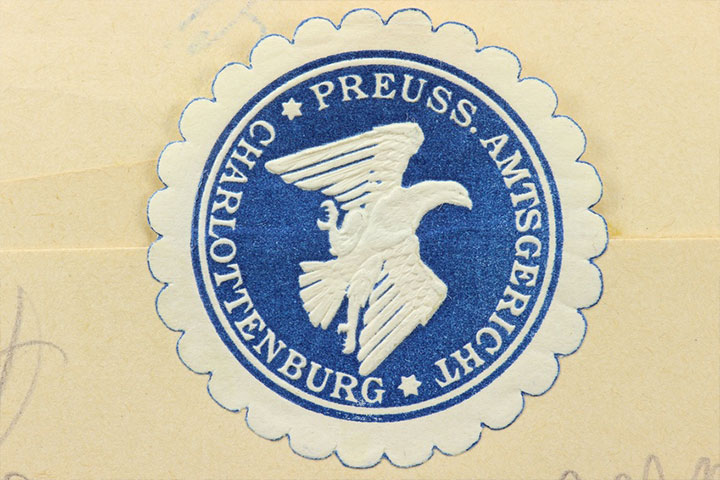
The company Schmidt & Schmidt provides services for the reclamation of civil status documents, as well as obtaining duplicates, lost or damaged documents in Switzerland with their subsequent legalization and translation.
It often happens that civil status documents are lost or damaged, or it is necessary to obtain current copies of documents. In this case, it is necessary to reclaim duplicates of documents. Often, those who have left Switzerland face difficulties in this procedure. Our service allows you to reclaim documents in Switzerland remotely, and we can carry out courier delivery of the document to anywhere in the world.
Validity of civil status documents in Switzerland
Civil status documents issued in Switzerland are usually valid for no more than 3 or 6 months, after which they must be replaced with new ones containing up-to-date data. In some federal states, documents are valid indefinitely, so this must be clarified at the place where the documents were issued. In addition, the receiving party may impose time requirements.
When to obtain duplicate documents in Switzerland
A duplicate birth certificate, marriage certificate, name change certificate, divorce certificate, criminal record certificate or death certificate may be required to register a marriage abroad, a newborn child, citizenship, inheritance, data verification for pension applications, opening bank accounts, employment and other bureaucratic issues.
What documents can be requested in Switzerland:
- Birth certificate
- Marriage certificate
- Certificate of change of surname
- Divorce certificate
- Death certificate
- Certificates of good conduct
- Educational documents
- Other civil status documents
Birth certificate
You can obtain copies of the birth certificate from the office where it was originally filed or issued on behalf of the civil status department (Abteilung Zivilstandswesen)
Certified copies of birth certificates are among the most commonly used documents to confirm citizenship, along with Swiss passports, citizenship certificates and naturalization certificates.
If you are requesting a birth certificate on behalf of someone else, you must provide proof of power of attorney for that person, along with a form of their identification. This requirement does not apply if you are reapplying for a birth certificate for a dependent or a child under 18.
If your child is born abroad, foreign authorities may not automatically notify the Swiss representation. Therefore, you will need to submit the necessary documents to your local Swiss representation. The civil status authority in Switzerland is responsible for recording the birth in its register.
If your child was born in Switzerland, you must also ensure that the birth is registered in the Register of the Swiss Abroad.
Required documents
- Family register (Familienbuechlein/livret de famille) / Marriage certificate
- Passports of both parents
- Residence permits
- Registration form completed at the Civil Registrar's Office (Zivilstandsamt)
- Residents of Geneva will need a certificat de domicile, issued by the Office Cantonale de la Population (OCP)
Marriage certificate
The marriage certificate is the legal record of marriage, used to verify marital status. It is usually required for procedures such as changing the last name, applying for spousal benefits, immigration applications and for inheritance matters.
If either or both parties of the engaged couple (whether Swiss or of foreign nationality) live in Switzerland then the application can be made at the Registry Office of either's commune of residence.
If neither party of the couple lives in Switzerland, the application must be made at the Registry Office in the district chosen for the marriage celebration, or through an authorized representative.
Required documents
- Family ID card
- Confirmation of Establishment (Notarised affidavit)
- Proof of identity
- Birth certificate
- marriage request form (from the Registry Office)
Criminal record certificate
A criminal record certificate, also known as a police certificate, is a document used to verify an individual's criminal record or confirm the absence of one. It is required for employment in sensitive fields, visa or immigration applications, volunteering and adoption proceedings.
There are two types of extract from the Register of Criminal Records (if both types of extract are required, two separate orders must be placed): Standard private extract and Special private extract.
The purpose of the standard extract is for normal job applications, when renting real estate or when applying for Swiss citizenship. This certificate you can only order for yourself. It contains all information including any convictions for felonies committed as an adult.
The purpose of the special extract is for inquiries such as working with children, working in a nursing home or for disabled individuals.
Required documents
- copy of an ID document (passport, identity card or foreign national identity card)
- printed and signed application form
Additionally, when applying for the Special private extract, one needs to present a written confirmation signed by the employer that the activity requires such extract.
Death certificate
This certificate is an official document that certifies an individual's death. It is often needed for legal and financial matters such as settling estates, claiming life insurance, finalizing wills, notifying government agencies and closing bank accounts. The document can be obtained at the state's or local Vital Records Office in the state where the death occurred.
To obtain a death certificate, a medical professional must first issue a medical death certificate. You can then request the official death certificate from the cantonal civil registry office and may reorder it later for a fee if needed.
Consider whether you require a national or international death certificate. If the deceased has assets abroad, an international certificate may be more appropriate.
The death certificate is essential for managing important tasks following a death, particularly for obtaining a certificate of inheritance.
Required documents
- Full name of the deceased
- Date and place of death
- Relationship to the deceased
- Identification and proof of eligibility to access the record
Educational Documents
Foreign educational documents only carry the same legal value as Swiss documents if they are exempt from legalization or have undergone the necessary legalization process. Documents from countries with bilateral agreements with Switzerland are fully exempt from legalization. Documents from countries that are part of the Hague Convention of 1961 undergo a simplified procedure called apostille. If neither countries are part of the convention or have bilateral agreements they undergo consular legalization
Apostille of duplicate documents in Switzerland
Switzerland joined the Hague Convention on the Simplified Legalization of Documents on the 11th March 1973.
Thus, documents issued in Switzerland are subject to legalization under a simplified procedure - apostille, after notarized translation into any language, such documents acquire full legal force in the territory of the wished destination.
You can order an apostille for copies and duplicates of documents from Switzerland from us.
















































